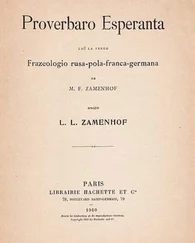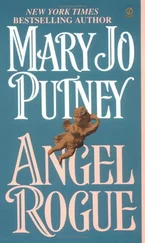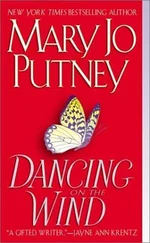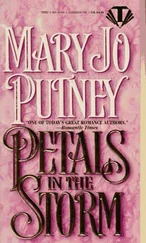‘Liberty! An angel of loveliness. Margaret, have you seen? She’s become a young lady.’
Libby squirmed awkwardly as she went to kiss her grandfather and Daphne moved to greet Margaret, kissing her on both cheeks and asking her how she was. ‘Lovely to see you, Daphne,’ she said calmly.
Ed held court as though he was the host. Daphne opened the first bottle of three they’d brought from Margaret’s small vineyard. It was one of her many projects that included helping at a local orphanage and editing all of Ed’s collected essays and reviews for an upcoming bumper edition. Approaching seventy, she was apparently tireless. Margaret and Ed sniffed and swilled and slurped the wine and Daphne had to suppress her irritation as they both made French-sounding noises of approval while she and Libby exchanged glances.
‘Like time travel,’ said Ed. ‘Being back in Connie’s place after so long. Even after her funeral, we didn’t come here, did we, Margaret?’ He looked around the walls where Daphne’s work was hanging. ‘And now I can feel her presence along with yours, Daphne. It was genius to leave you her flat.’ He turned to Libby: ‘What do you think, Liberty? Are you happy here in your…’ He paused to work out the relationship between his granddaughter and his sister. ‘In your great-aunt’s place?’
Libby nodded obediently. ‘Yeah, it’s nice.’
Ed stood up, a restless old stork, peering down his long beak into the darkness beyond the window. He’d grown a beard – trimmed and white and rather fashionable, Daphne thought. But his voice was old-fashioned – like a BBC announcer from the ’60s, the antiquated intonation set firmer by the preservative of expat existence.
‘You know, Daphne, in the old days, when we were over there,’ he gestured across the river towards the back gardens of Barnabas Road, some of which were lit up, ‘I often nipped across the bridge to see Connie for a drink. Stiff gin and tonics were her speciality. Such a wise bird, my sister, even back in the days when most people were so giddy they didn’t know if they were coming or going. She gave sage advice. I’d always leave here understanding the world slightly more, always in a better state.’ Libby handed round olives – guests first, and topped up the wine glasses. Daphne’s was already empty.
It was true, thought Daphne, that Ed had a tendency to disappear in those Putney days. She rarely knew whether either parent would be at home and, if they weren’t, where they’d gone. There was an assumption that each person, adult or child, was free to come and go as they liked. No explanation necessary. When she returned from school, the house was often bleakly silent. It was even worse when she ran around, calling out, checking whether anyone was home. And you could never tell whether it would remain miserably empty until way past suppertime or whether there would suddenly be a dinner party and her parents were merely out buying provisions.
It was infuriating to hear Ed witter on about boozy, pseudo-intellectual chats with his sister, when he never stopped to wonder what his daughter had been doing at the same time. Why hadn’t he looked after her?
‘I’m just going to sort out the food,’ she said, standing up too quickly, almost missing her footing, and realising she was already well through her third glass of wine.
‘Can I help?’ said Margaret, a shade too brightly, as though casting doubt on what might make its way to the table. Though she was the modest foil to Edmund’s showy exterior, dressing herself down in loose-fitting beiges and greys, Margaret had once been the owner of a successful little restaurant in Ottawa, and a jobbing journalist before that. There was no doubting her capabilities.
‘No need.’ She knew it sounded ungrateful and followed up with, ‘I’m fine. Thanks.’
She advanced carefully to the kitchen, sparks of anger firing in different directions. The Turkish food had already been delivered and she had transferred the spinach and cheese pies, aubergine stew, rice-stuffed vegetables and parsley-filled salad into her own dishes. She reheated the ones that needed it. It was only as she stirred the yogurt with garlic and dill that she realised they were all versions of the Greek food her mother used to make. Now she felt angry with Ellie as well as Ed, and the knowledge that this was forty years too late only made it worse. Nothing could turn them into steady, reliable parents at this stage, but she could still dive deep into the chaotic emotions of an eleven-year-old.
‘Daphne,’ Ed leaned against the doorway to the kitchen, ‘I wanted to ask you something.’ The public bonhomie was replaced by something more sober.
‘Of course.’ She continued gathering a mismatched assortment of plates – the 1970s collection was already irritating her with its cloying colour palette of caramel, avocado green and tomato red. I’d like to ask you something too, she thought. Do you have any idea what I went through?
‘Just before we left to come here, I rang Ralph.’ Daphne gripped a plate and looked at him. How would Ralph have phrased it? she wondered.
‘I was checking that he and Nina were coming to my birthday,’ he continued. ‘And it was very mysterious. He said he wasn’t able to talk, that something had happened, and that I should ask you.’ He looked at her anxiously, as if hoping this was a misunderstanding. ‘What on earth is he on about?’
It wasn’t easy. When she used the word rape, Ed’s whole body flinched as though he’d had an electric shock.
‘Did he force you?’
And then she had to explain that it wasn’t necessarily like that in the case of children.
‘Did you love him?’
She parroted that love didn’t count in this sort of thing. ‘They call that grooming, when an adult makes a child love them. I’ve been imagining what I’d think if something like that happened to Libby.’
‘But, darling girl, why didn’t you tell us?’ He stooped, looking at the floor, picking at the doorframe with long, oval fingernails and shaking his head. It was as if he couldn’t fit this rewritten history into his brain. ‘So you went to the police,’ he said, as though telling himself the story from another angle.
Daphne wasn’t sure what she’d expected from her father – a comforting embrace and practical advice, or even a word of encouragement would have been good. But Ed acted as he usually did in the face of setbacks, attacks or disasters: he recoiled. ‘Pulling up the drawbridge’ was what he called it. No entry or exit, just the castle’s thick walls with slits for assessing the lie of the land or shooting the enemy. You could see his features turning stony, his eyes glassy. He’d always been like that, his moods and communications exaggerated one way or the other. In good humour, he’d be booming from the castle walls to the crowds below, welcoming them all inside. Daphne made no attempt to continue the conversation. Despite having drunk enough wine to make her less restrained, she knew nothing she could say would make the drawbridge come down again this evening.
Dinner was subdued; no mention of the revelations. The four of them gathered at Connie’s old pine table and Margaret made soothing comments about the dinner, even though Daphne had singed the Turkish pies. There were more than enough distractions, she reasoned, though it didn’t help to be viewed as someone who couldn’t even warm up a takeaway. Margaret sat next to Ed and fussed when he only picked at his food.
Ed refused the syrupy pastries and pistachio ice cream and, as soon as the others finished theirs, he said, ‘I’m still very tired. The journey, you know. I’m an old man now.’ He laughed, as though the idea was ludicrous. The older Daphne got, the more she comprehended how the treachery of age was baffling when it caught you. As a younger woman, she had seen the elderly as a different species, cut off from smooth-skinned, swift-limbed youth. It was only before her fiftieth birthday that she began to realise the old were just people like her who had lived longer – a shaming revelation. When she noticed the first white strand nestling amongst her black pubic hair, she thought it must be a mistake. Until there was another one. That was how it went, she supposed, until it was dodgy hips, swollen joints and all the rest. It was only those like her mother who, by dying young, got away without these mortifications.
Читать дальше












